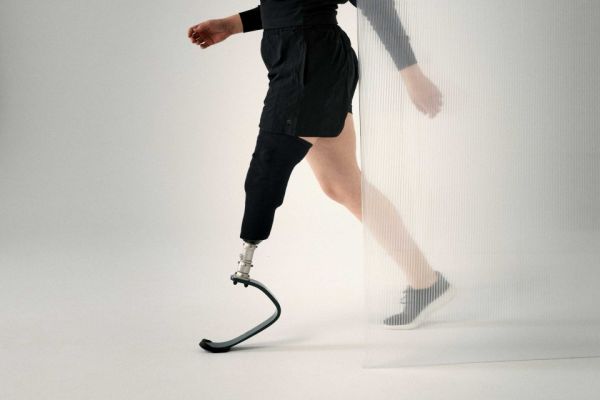5 Things to Stop Doing When Struggling
Author: Lori Deschene

“There is nothing in nature that blooms all year long, so don’t expect yourself to do so either.” ~Unknown
Recently I’ve been spread incredibly thin, and, at times, I’ve felt stressed to the max.
To be fair, there’s also been a lot to enjoy and appreciate, and I know I am incredibly fortunate to have the opportunity to do so much. But life has felt somewhat pressure-filled as of late, and along with many small wins have come many hours and days when I’ve felt drained and defeated.
I recently realized that my best days all have certain things in common — little things I choose to do for my well-being, and a number of unhelpful habits I resist the urge to indulge. If you’re also struggling, personally or professionally, and feeling drained, perhaps my lessons will be helpful to you too.
1. Stop comparing your struggle to anyone else’s.
Over a year ago an old friend of mine was diagnosed with breast cancer. She’s the same age as I am, and she’s someone I’ve long admired, even though we’ve fallen out of touch beyond occasional interactions on social media.
She’s left unfulfilling jobs, despite the financial risk involved. She’s walked away from relationships that weren’t right for her, even while engaged, when it would have been easier to stay. And she’s jumped out of more than 100 planes, each leap representative of the courage that guides her every inspiring and bold life choice.
She’s faced cancer with the type of bravery I’ve come to expect from her, coupled with an honesty and vulnerability about her fears that, to me, displays even more strength. But still, I know it’s been grueling.
As I sit here in my own very fortunate circumstances, I often tell myself I have no reason to be struggling. My current experience couldn’t even be termed a struggle compared to what she’s been through. I should just suck it up when I’m having a hard day and push myself through any tiredness or discomfort. Because I’m lucky.
But the reality is, I still have hard days dealing with a host of fears and physical symptoms that require my compassion.
I wouldn’t compare my hard days to her devastating year — there’s clearly no comparison — but the point is, I don’t have to. I’m allowed to experience the feelings and struggles associated with my current life circumstances even if someone else’s are far more tragic. And so are you.
To be fair, there’s also been a lot to enjoy and appreciate, and I know I am incredibly fortunate to have the opportunity to do so much. But life has felt somewhat pressure-filled as of late, and along with many small wins have come many hours and days when I’ve felt drained and defeated.
I recently realized that my best days all have certain things in common — little things I choose to do for my well-being, and a number of unhelpful habits I resist the urge to indulge. If you’re also struggling, personally or professionally, and feeling drained, perhaps my lessons will be helpful to you too.
1. Stop comparing your struggle to anyone else’s.
Over a year ago an old friend of mine was diagnosed with breast cancer. She’s the same age as I am, and she’s someone I’ve long admired, even though we’ve fallen out of touch beyond occasional interactions on social media.
She’s left unfulfilling jobs, despite the financial risk involved. She’s walked away from relationships that weren’t right for her, even while engaged, when it would have been easier to stay. And she’s jumped out of more than 100 planes, each leap representative of the courage that guides her every inspiring and bold life choice.
She’s faced cancer with the type of bravery I’ve come to expect from her, coupled with an honesty and vulnerability about her fears that, to me, displays even more strength. But still, I know it’s been grueling.
As I sit here in my own very fortunate circumstances, I often tell myself I have no reason to be struggling. My current experience couldn’t even be termed a struggle compared to what she’s been through. I should just suck it up when I’m having a hard day and push myself through any tiredness or discomfort. Because I’m lucky.
But the reality is, I still have hard days dealing with a host of fears and physical symptoms that require my compassion.
I wouldn’t compare my hard days to her devastating year — there’s clearly no comparison — but the point is, I don’t have to. I’m allowed to experience the feelings and struggles associated with my current life circumstances even if someone else’s are far more tragic. And so are you.
"Many may have it “worse,” but why compare and judge? Two people can have completely different situations, and both can need and deserve compassion equally."
2. Stop focusing on things that aren’t priorities.
When we’re going through a tough time, we need to get extra-discriminating about what truly matters and what doesn’t. If we exhaust ourselves with the non-essentials, we’ll have little energy for the things that can actually move the dial in the areas of our life that most need our attention.
I remember when I had surgery years back. I knew I needed to take it easy or else I’d prolong my healing, but I also felt the overwhelming urge to maintain order in my environment. I’m a control freak. It’s what I do.
I remember a pair of shoes next to the door, where shoes didn’t usually go, and not only that, they were askew. The horror!
I was one day out of surgery, my lower stomach stitched together, yet I still felt the need to slowly lower myself so I could put those shoes in the closet — even though it was painful to do so. My mother, who was visiting to help me, pointed out the insanity, and I knew she was right.
I now think of those shoes whenever I am struggling physically or emotionally, and I ask myself, “what else really doesn’t need to be immediately done, or do I not actually have to do myself?”
Can the dishes wait until the morning? Or can I get someone else to do them? Does every email in my inbox need a response—and immediately? Can I say “no” to some requests? Can I simplify my daily routine? What do I really need to do for myself, physically, emotionally, and professionally?
Scaling back can feel like failure, especially if you’re Type A, like me, but sometimes we have to prioritize so we can use the limited energy we have wisely. If we don’t, we risk busting open our “stitches,” whether that means physical burnout or an emotional breakdown, and then we set ourselves back even further.
3. Stop expecting yourself to do what you could do before.
Maybe you were far more physically active or productive before (I know I was). Or you were the person anyone could call any time, any day, whenever they needed an ear or a hand. Or you were everyone’s go-to person for a night out when they needed to blow off some steam.
It’s easy to cling to our sense of identity when we feel it slipping away. Not only do we mourn who we used to be, fearing this change may be permanent, but we worry other people may not like this new version of ourselves—this person who’s far less fun or far more needy.
When we’re going through a tough time, we need to get extra-discriminating about what truly matters and what doesn’t. If we exhaust ourselves with the non-essentials, we’ll have little energy for the things that can actually move the dial in the areas of our life that most need our attention.
I remember when I had surgery years back. I knew I needed to take it easy or else I’d prolong my healing, but I also felt the overwhelming urge to maintain order in my environment. I’m a control freak. It’s what I do.
I remember a pair of shoes next to the door, where shoes didn’t usually go, and not only that, they were askew. The horror!
I was one day out of surgery, my lower stomach stitched together, yet I still felt the need to slowly lower myself so I could put those shoes in the closet — even though it was painful to do so. My mother, who was visiting to help me, pointed out the insanity, and I knew she was right.
I now think of those shoes whenever I am struggling physically or emotionally, and I ask myself, “what else really doesn’t need to be immediately done, or do I not actually have to do myself?”
Can the dishes wait until the morning? Or can I get someone else to do them? Does every email in my inbox need a response—and immediately? Can I say “no” to some requests? Can I simplify my daily routine? What do I really need to do for myself, physically, emotionally, and professionally?
Scaling back can feel like failure, especially if you’re Type A, like me, but sometimes we have to prioritize so we can use the limited energy we have wisely. If we don’t, we risk busting open our “stitches,” whether that means physical burnout or an emotional breakdown, and then we set ourselves back even further.
3. Stop expecting yourself to do what you could do before.
Maybe you were far more physically active or productive before (I know I was). Or you were the person anyone could call any time, any day, whenever they needed an ear or a hand. Or you were everyone’s go-to person for a night out when they needed to blow off some steam.
It’s easy to cling to our sense of identity when we feel it slipping away. Not only do we mourn who we used to be, fearing this change may be permanent, but we worry other people may not like this new version of ourselves—this person who’s far less fun or far more needy.
"But the thing is, we’re not who we were before. We’re in a new chapter, facing new circumstances and challenges, and our evolving needs won’t go away just because we ignore or neglect them."
I’m not going to sugar coat this: It just plain sucks when you can’t do the things you once enjoyed. It’s natural to grieve losses, temporary or permanent, big or small, but eventually we need to accept reality and then ask ourselves, “How can I work with the way things are instead of resisting them?” Otherwise, we cause ourselves a lot of unnecessary stress — and it doesn’t help or change anything.
4. Stop pushing yourself when you need to take it easy.
We all do it, or at least I suspect we do. We minimize our physical and emotional needs because we judge ourselves for having them. We think we should be able to do more. Maybe because other people in similar situations are doing more. Or because we just plain expect a lot from ourselves.
But the thing is, telling yourself you shouldn’t be exhausted doesn’t make you better able to function through your tiredness. Demeaning yourself for needing a break doesn’t make you any more productive or effective. And belittling yourself for feeling whatever you feel doesn’t immediately transform your emotions.
If you’re tired, you need rest. If you’re drained, you need a break. If you’re hurting, you need your own compassion. And nothing will change for the better until you give yourself what you need.
I get that we can’t always instantly drop everything to take good care of ourselves, especially when other people are depending on us. But we can usually create small pockets of time for self-care by alleviating our self-imposed pressure and prioritizing our needs. Sometimes, small things can make a big difference.
It’s tempting to push ourselves, especially if this has been our pattern. But some days aren’t for moving forward. They’re just for honouring where we are.
5. Stop reminding yourself of how you’re “falling behind.”
I think it all boils down to this. When we minimize our struggle, try to do too much, and push ourselves despite our desperate need for self-care, it’s generally because we’re afraid we’re somehow falling behind.
We think about everything we want to accomplish, everything we believe we need to do in order to become who we think we should be, and we panic at the thought of losing momentum.
We also live in this constant bubble of comparison, as if we need to keep up with everyone else in order to make the most of our lives.
But none of this is true. While we may want growth and change, we don’t need it in order to be worthy or happy, and certainly not on a pre-determined timeline. We also don’t need to keep up with anyone else because we’re never behind; we’re simply on our own path.
Most people would agree that some of their most immense growth came from their greatest challenges. I would never have guessed, during the ten-plus years I struggled with depression and bulimia, how profoundly my pain would shape the trajectory of my life and lead to new chapters that were exciting and fulfilling.
Wherever you are right now, be there fully. Accept it. Open up to it. It’s only when we accept the lows, that we’re able to grow through them and rise to the highs.
Whatever you’re going through, I wish the same for you: self-compassion to help alleviate your pain, permission to do only what you reasonably can, and space to take good care of yourself.
This article was published at tinybuddha.com. You can follow Tiny Buddha on Facebook, Twitter and Instagram.
About Lori Deschene Lori is the founder of Tiny Buddha. She’s also the author of Tiny Buddha’s Gratitude Journal, Tiny Buddha's Worry Journal, and Tiny Buddha's Inner Strength Journal, and co-founder of Recreate Your Life Story, an online course that helps you let go of the past and live a life you love.
4. Stop pushing yourself when you need to take it easy.
We all do it, or at least I suspect we do. We minimize our physical and emotional needs because we judge ourselves for having them. We think we should be able to do more. Maybe because other people in similar situations are doing more. Or because we just plain expect a lot from ourselves.
But the thing is, telling yourself you shouldn’t be exhausted doesn’t make you better able to function through your tiredness. Demeaning yourself for needing a break doesn’t make you any more productive or effective. And belittling yourself for feeling whatever you feel doesn’t immediately transform your emotions.
If you’re tired, you need rest. If you’re drained, you need a break. If you’re hurting, you need your own compassion. And nothing will change for the better until you give yourself what you need.
I get that we can’t always instantly drop everything to take good care of ourselves, especially when other people are depending on us. But we can usually create small pockets of time for self-care by alleviating our self-imposed pressure and prioritizing our needs. Sometimes, small things can make a big difference.
It’s tempting to push ourselves, especially if this has been our pattern. But some days aren’t for moving forward. They’re just for honouring where we are.
5. Stop reminding yourself of how you’re “falling behind.”
I think it all boils down to this. When we minimize our struggle, try to do too much, and push ourselves despite our desperate need for self-care, it’s generally because we’re afraid we’re somehow falling behind.
We think about everything we want to accomplish, everything we believe we need to do in order to become who we think we should be, and we panic at the thought of losing momentum.
We also live in this constant bubble of comparison, as if we need to keep up with everyone else in order to make the most of our lives.
But none of this is true. While we may want growth and change, we don’t need it in order to be worthy or happy, and certainly not on a pre-determined timeline. We also don’t need to keep up with anyone else because we’re never behind; we’re simply on our own path.
Most people would agree that some of their most immense growth came from their greatest challenges. I would never have guessed, during the ten-plus years I struggled with depression and bulimia, how profoundly my pain would shape the trajectory of my life and lead to new chapters that were exciting and fulfilling.
Wherever you are right now, be there fully. Accept it. Open up to it. It’s only when we accept the lows, that we’re able to grow through them and rise to the highs.
Whatever you’re going through, I wish the same for you: self-compassion to help alleviate your pain, permission to do only what you reasonably can, and space to take good care of yourself.
This article was published at tinybuddha.com. You can follow Tiny Buddha on Facebook, Twitter and Instagram.
About Lori Deschene Lori is the founder of Tiny Buddha. She’s also the author of Tiny Buddha’s Gratitude Journal, Tiny Buddha's Worry Journal, and Tiny Buddha's Inner Strength Journal, and co-founder of Recreate Your Life Story, an online course that helps you let go of the past and live a life you love.








 How to resolve AdBlock issue?
How to resolve AdBlock issue?